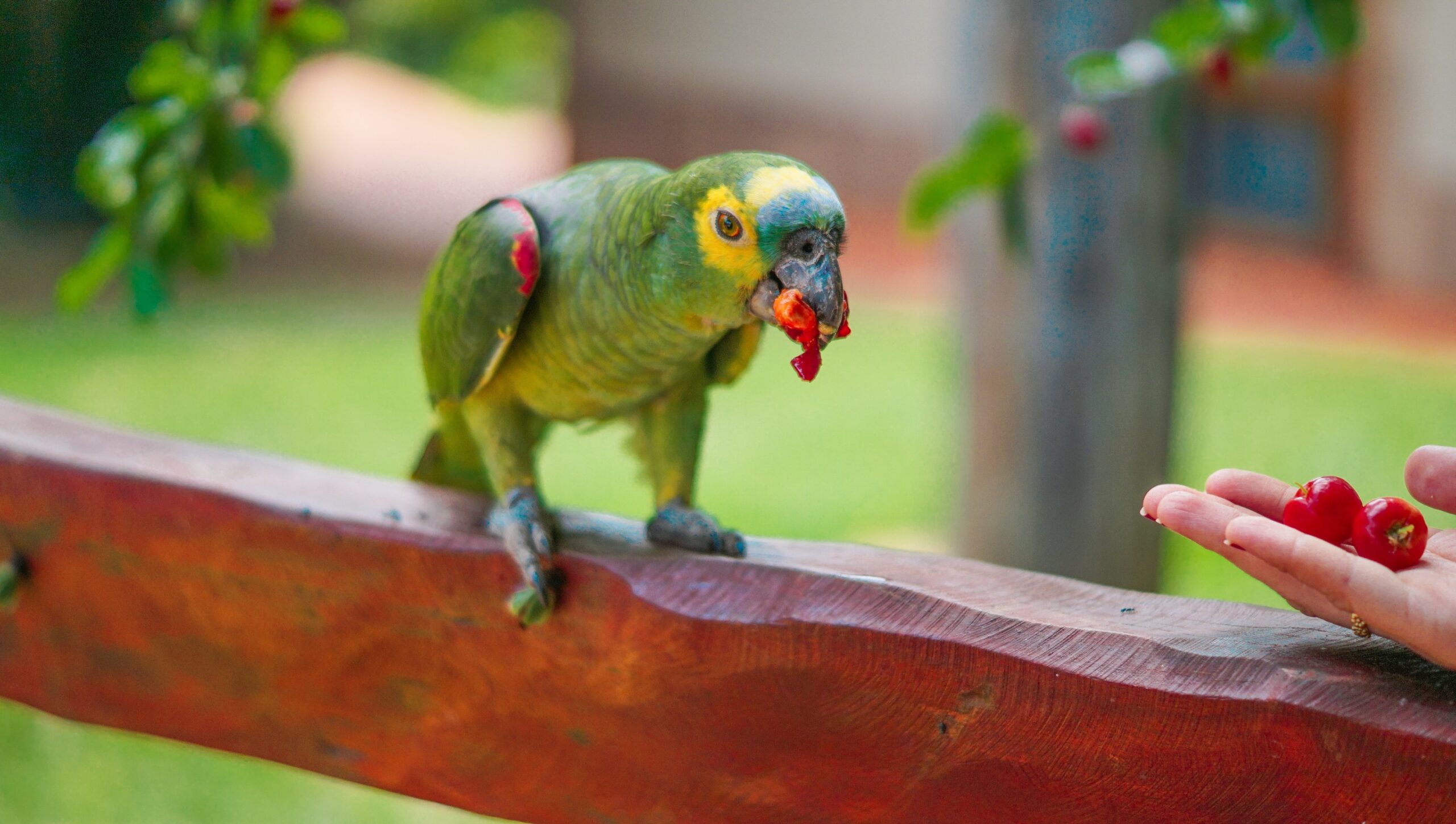Parrots are dynamic, brilliantly feathered creatures known for their exceptional capacity to imitate sounds and count human discourse. In any case, their excellence and charm moreover require legitimate care, and a critical portion of that care includes nourishing them in an adjusted and nutritious way. Parrots’ dietary needs change depending on the species, but understanding the nuts and bolts of what parrots eat is fundamental for their wellbeing and wellbeing.
Contents
1. Seeds and Grains
Seeds are a staple in numerous parrots’ diets. Be that as it may, bolstering them exclusively with seeds can lead to ailing health since seeds need basic supplements, like vitamins and minerals. Parrots appreciate seeds like:
- Sunflower seeds
- Millet
- Safflower seeds
However, giving seeds in balance is critical, and we should eat less as a portion of a shift. A seed-only eat-less is tall in fat and can lead to weight or dietary deficiencies.
2. Pellets
Many parrot proprietors select for extraordinarily defined pellet nourishment. Pellets are outlined to give an adjusted eat less, containing all the basic supplements a parrot needs, counting vitamins, minerals, and proteins. Unlike seeds, they are less likely to lead to picky eating since they are uniform in shape and taste.
Pellets come in different sorts and sizes to suit diverse species of parrots, making them a helpful alternative for guaranteeing adjusted nutrition.
3. Fruits
Parrots cherish natural products that give them common sugars, vitamins, and hydration. A few of the most common natural products parrots appreciate include:
- Apples (without seeds, as they contain cyanide)
- Berries (strawberries, blueberries, raspberries)
- Bananas
- Grapes
- Papayas
- Mangoes
- Pineapple
Evacuating seeds and pits is basic when nourishing natural products, as a few contain poisonous substances that can hurt parrots.
4. Vegetables
Vegetables are a fundamental portion of a parrot’s eating, giving imperative vitamins and minerals. Numerous parrots appreciate the taking after vegetables:
- Carrots
- Broccoli
- Kale
- Spinach
- Sweet potatoes
- Peas
- Bell peppers
Dark, verdant greens and colorful vegetables are particularly useful because they are rich in cancer-prevention agents and fiber.
5. Nuts
Nuts are an awesome source of sound fats, proteins, and minerals for parrots. Commonly delighted in nuts include:
- Almonds
- Walnuts
- Cashews
- Pecans
Nuts ought to be bolstered in control, as they are tall in fat. Moreover, they make awesome treats and can be used to prepare rewards.
6. Vegetables and Cooked Grains
Legumes and grains give extra supplements and can be advertised cooked and cooled. These include:
- Chickpeas
- Lentils
- Quinoa
- Brown rice
These nourishments are wealthy in proteins and strands, making them a nutritious expansion to a parrot’s diet.
7. Nourishments to Avoid
While parrots can eat a wide assortment of nourishments, there are a few that are perilous or harmful and ought to be avoided:
Avocados: Profoundly poisonous to parrots.
Chocolate: Contains theobromine, which is harmful to birds.
Caffeine: Can cause heart arrhythmias and other wellbeing issues.
Onions and Garlic: Can cause stomach-related issues and indeed be fatal.
Salty or Sugary Nourishments: Too much salt or sugar can lead to health complications.
Alcohol: Poisonous to parrots, indeed in small quantities.
8. Water
Clean, new water ought to continuously be accessible for parrots. It’s imperative to change their water daily to avoid bacterial development and guarantee hydration.
Conclusion
Parrots require a calorie count shift incorporating seeds, pellets, natural products, vegetables, and nuts to flourish. An adjusted and nutritious slim keeps parrots sound and also upgrades their dynamic plumage, life span, and mental wellbeing. It’s vital to understand that each parrot species may have particular dietary needs, so counseling with a veterinarian specializing in fowls can offer assistance tailor the best eat-less for your pet parrot.
FAQs
1. Can parrots eat seeds only?
While parrots enjoy seeds, a seed-only diet can lead to malnutrition and health issues. Seeds should be part of a balanced diet that includes fruits, vegetables, and pellets.
2. Are fruits safe for parrots?
Yes, parrots can safely eat a variety of fruits like apples, bananas, berries, and grapes. However, be sure to remove any seeds or pits from fruits, especially apple seeds, as they can be toxic.
3. What vegetables are good for parrots?
Vegetables like carrots, broccoli, spinach, bell peppers, and sweet potatoes are great for parrots. Dark, leafy greens and brightly colored veggies are especially nutritious.
